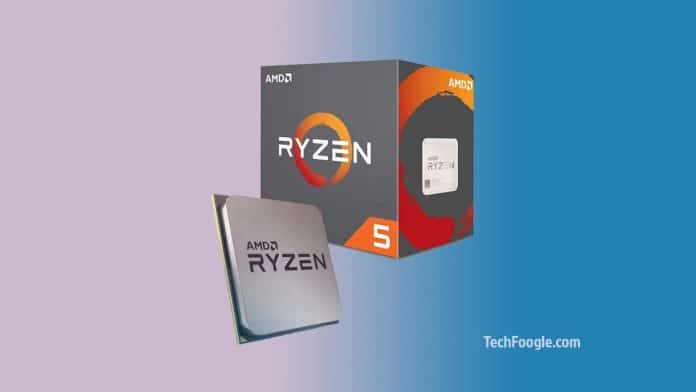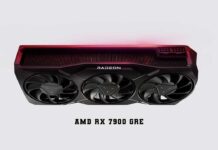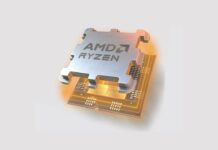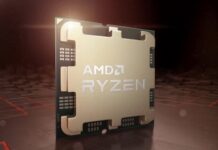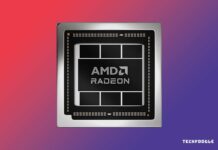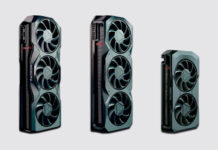In the ever-evolving landscape of computer hardware, Advanced Micro Devices (AMD) continually pushes the boundaries of innovation with its Ryzen processor lineup. The Ryzen 7 5700, a recent addition to AMD’s offerings, has sparked discussions among tech enthusiasts. Surprisingly, it has been observed that the Ryzen 7 5700 lags behind its counterpart, the Ryzen 5 5600, in gaming performance—a revelation that has left many scratching their heads.
Table of Contents
Understanding the AMD Ryzen 7 5700 Phenomenon
The release of the AMD Ryzen 7 5700 was eagerly anticipated by enthusiasts worldwide. However, the revelation of its underwhelming gaming performance caught many off guard. Traditionally, a higher numerical designation in AMD’s Ryzen lineup implies superior performance. Yet, in this case, the AMD Ryzen 7 5700 falls short compared to the Ryzen 5 5600—a processor occupying a lower tier in AMD’s hierarchy.
Deciphering the Discrepancy
The question arises: How did AMD, known for its prowess in processor technology, end up releasing a chip that fails to outperform its ostensibly inferior counterpart? One must delve into the technical specifications that set these processors apart to comprehend this anomaly.
Technical Specifications Comparison
| AMD Ryzen 5000 Processor (AM4) | Cores & Threads | Base & Boost Clock | L3 Cache | TDP | Price |
|---|---|---|---|---|---|
| Ryzen 7 5700 | 8 cores, 16 threads | 3.70 GHz / 4.60 GHz | 32MB | 65W | $175 |
| Ryzen 7 5700X | 8 cores, 16 threads | 3.70 GHz / 4.60 GHz | 16MB | 65W | $180 |
The critical difference lies in the L3 cache size, where the AMD Ryzen 7 5700 exhibits a lower cache capacity than its ‘X’ variant counterpart. This reduction in cache size impacts the processor’s performance, particularly in gaming scenarios.
Impact on Gaming Performance
The significance of L3 cache size cannot be overstated, especially concerning gaming performance. Benchmarks conducted by Hardware Unboxed have shed light on the disparity between these processors, particularly in gaming benchmarks.
Benchmark Insights
Testing across a spectrum of modern games at 1080p resolution reveals a consistent trend: the Ryzen 5 5600 outperforms the AMD Ryzen 7 5700 in gaming scenarios. Despite the latter’s higher core count, the former’s superior cache configuration translates to tangible gaming performance gains.
Navigating Consumer Choices
For prospective PC builders, the decision between the AMD Ryzen 7 5700 and the Ryzen 5 5600 hinges on their priorities. While the AMD Ryzen 7 5700 may offer advantages in multi-threaded workloads, gamers prioritizing smooth gaming experiences may find the Ryzen 5 5600 more appealing.
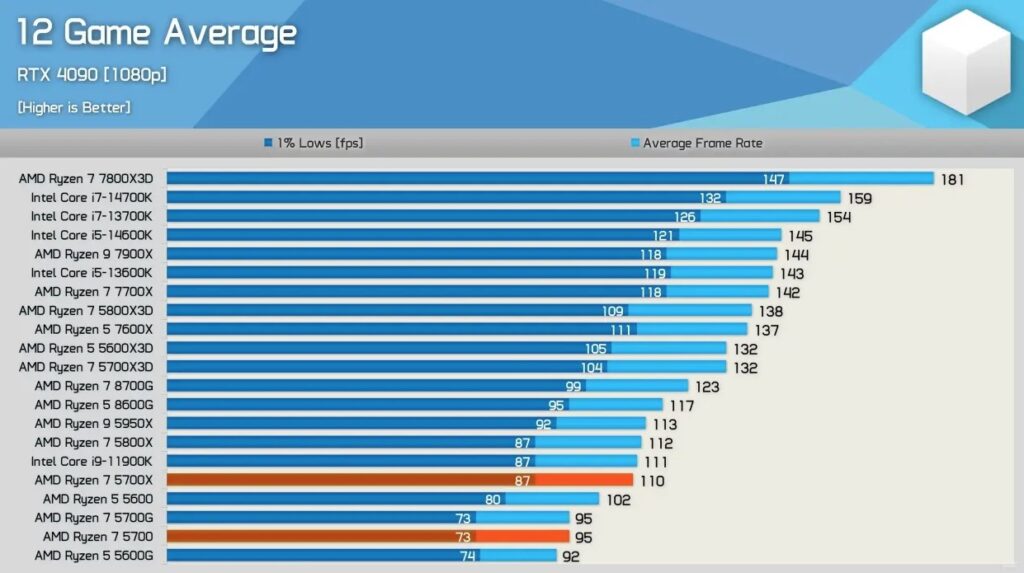
Educating Consumers
It is imperative to disseminate this knowledge to empower consumers in making informed decisions. Many enthusiasts may need to pay more attention to the nuanced differences between these processors, leading to suboptimal choices. By highlighting the gaming performance gap between the AMD Ryzen 7 5700 and its counterparts, we aim to equip consumers with the necessary information to make prudent choices.
Conclusion
In conclusion, the AMD Ryzen 7 5700’s unexpected performance shortfall in gaming scenarios underscores the importance of scrutinizing technical specifications beyond numerical designations. While AMD continues to innovate with its processor lineup, consumers must assess their requirements diligently to make optimal purchasing decisions.
SOURCE Hardware Unboxed

